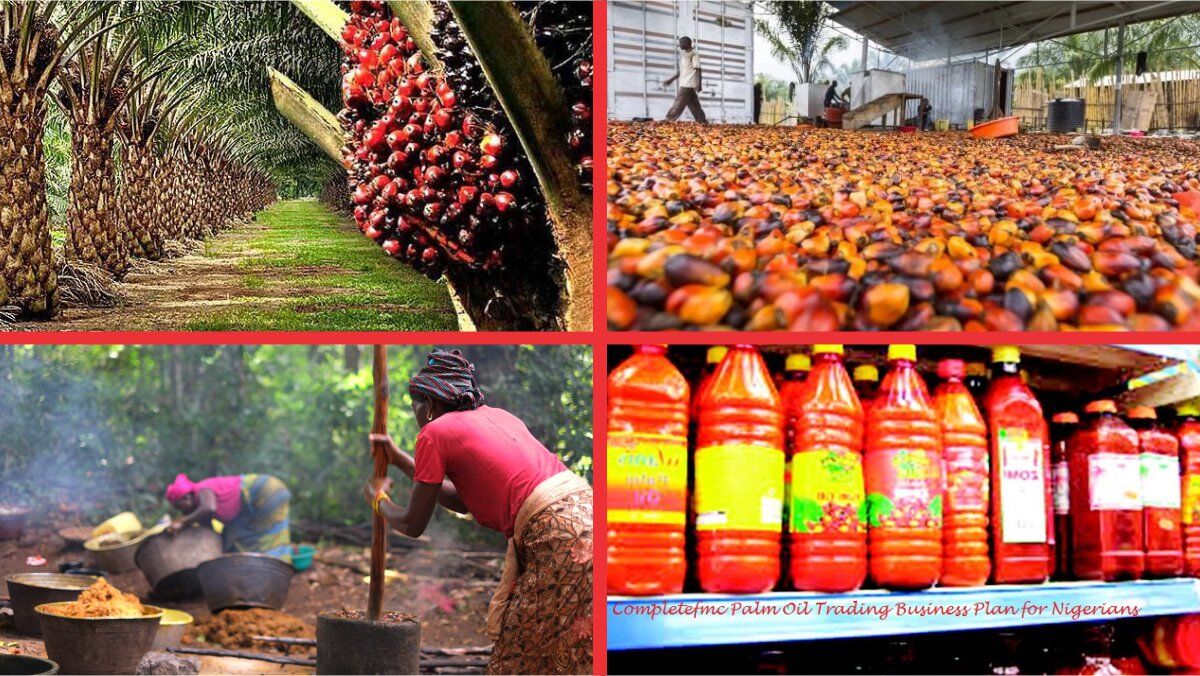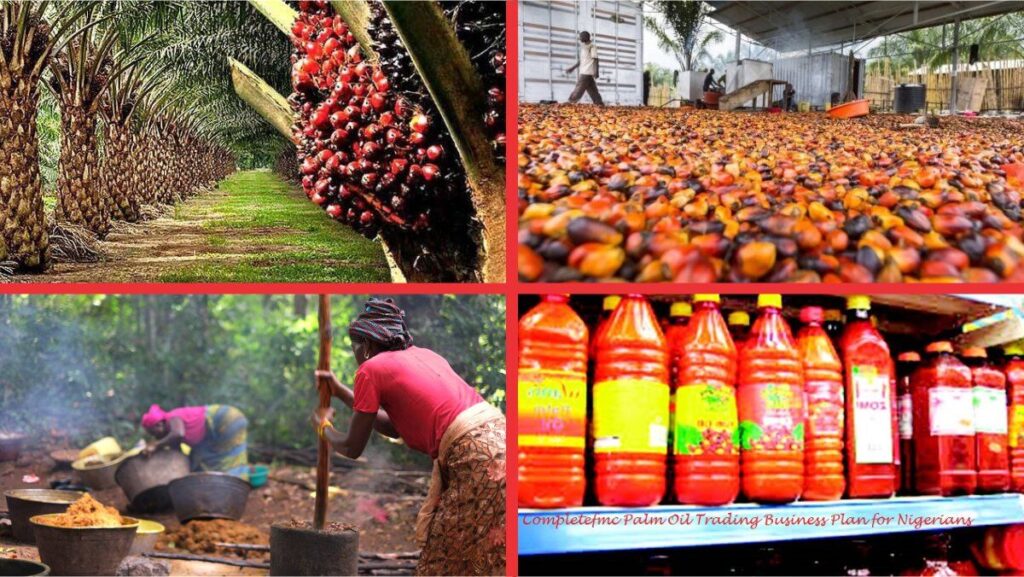Nigeria’s palm oil industry holds immense potential for entrepreneurs looking to venture into agribusiness. With its rich agricultural landscape, favorable climate, and high demand for palm oil, the country provides a golden opportunity for those seeking to start a palm oil business. This comprehensive guide serves as your roadmap, offering insights into every aspect of the palm oil business, from planting oil palm trees to processing and marketing the final product. Let’s delve into the steps that will guide you towards a thriving palm oil enterprise.
1. Conducting Preliminary Research
a. Market Analysis
- Local Demand: Analyze the local and national demand for palm oil products.
- Competitor Assessment: Identify existing palm oil businesses and assess their strengths and weaknesses.
b. Selecting a Niche
- Raw Palm Oil Production: Consider focusing on the production of raw palm oil.
- Value-Added Products: Explore the possibility of producing value-added products such as palm kernel oil and palm oil-based cosmetics.
c. Understanding Regulations
- Government Policies: Familiarize yourself with government regulations regarding palm oil production.
- Environmental Compliance: Ensure compliance with environmental regulations related to oil palm cultivation.
2. Acquiring Land and Establishing the Oil Palm Plantation
a. Choosing the Right Location
- Climate Suitability: Select a location with a tropical climate suitable for oil palm cultivation.
- Soil Quality: Assess soil conditions to ensure they are conducive to oil palm growth.
b. Land Preparation
- Clearing and Grubbing: Clear the land of any existing vegetation and debris.
- Drainage Systems: Establish effective drainage systems to prevent waterlogging.
c. Planting Oil Palm Trees
- Seed Selection: Choose high-quality seeds from reputable sources.
- Planting Density: Follow recommended planting density guidelines for optimal yield.
d. Caring for Oil Palm Trees
- Fertilization: Implement a fertilization schedule to ensure the trees receive essential nutrients.
- Pest and Disease Control: Monitor and control pests and diseases to protect the oil palm trees.
3. Establishing Palm Oil Processing Facilities
a. Building Processing Units
- Crude Palm Oil Mill: Construct a mill for extracting crude palm oil from fresh fruit bunches.
- Refinery Unit: If producing refined palm oil, set up a refinery unit for further processing.
b. Installing Equipment
- Threshing Machine: Invest in a reliable threshing machine for separating fruits from bunches.
- Oil Press: Acquire an oil press for extracting oil from palm fruit pulp.
c. Quality Control Measures
- Quality Testing: Implement quality control measures to ensure the produced palm oil meets industry standards.
- Hygiene Practices: Maintain strict hygiene practices during the processing stages.
d. Waste Management
- Effluent Treatment: Establish an effluent treatment system to manage waste responsibly.
- Biogas Production: Consider utilizing waste for biogas production to generate additional energy.
4. Developing a Marketing Strategy
a. Brand Development
- Logo and Packaging: Design an appealing logo and packaging for your palm oil products.
- Brand Story: Craft a compelling brand story that resonates with consumers.
b. Distribution Channels
- Local Retailers: Partner with local retailers and markets to sell your palm oil products.
- Online Presence: Establish an online presence through a website or social media for wider reach.
c. Value-Added Products
- Cosmetic Line: If producing palm oil-based cosmetics, create a separate line and market it accordingly.
- Educational Marketing: Educate consumers on the benefits of your palm oil products.
d. Networking and Collaborations
- Industry Associations: Join palm oil industry associations to network with other businesses.
- Collaborate with Retailers: Collaborate with supermarkets and stores to expand your market presence.
5. Financial Planning and Management
a. Start-Up Budgeting
- Initial Investment: Create a comprehensive budget covering land acquisition, cultivation, processing, and marketing.
- Contingency Fund: Include a contingency fund for unforeseen expenses.
b. Financing Options
- Government Loans: Explore government loans and agricultural financing options.
- Investors: Attract investors by presenting a well-researched business plan and potential returns.
c. Record Keeping
- Financial Records: Maintain accurate records of expenses, revenue, and profits.
- Tax Obligations: Understand and fulfill tax obligations for your palm oil business.
6. Sustainable Practices and Certification
a. Sustainable Palm Oil Production
- Certification Programs: Consider obtaining certification from organizations promoting sustainable palm oil production.
- Biodiversity Conservation: Implement practices that preserve biodiversity in your plantation.
b. Community Engagement
- Employment Opportunities: Create employment opportunities for local communities.
- Education Initiatives: Support educational initiatives to empower communities around your plantation.
7. Adapting to Market Trends and Innovations
a. Technology Integration
- Precision Farming: Explore precision farming technologies for efficient plantation management.
- Online Sales Platforms: Embrace e-commerce platforms for online sales and marketing.
b. Consumer Preferences
- Health and Wellness Trends: Stay informed about health and wellness trends influencing consumer choices.
- Product Innovation: Innovate in product development based on changing consumer preferences.
Conclusion
Embarking on a palm oil business in Nigeria offers not just a business opportunity but a chance to contribute to the nation’s agricultural prosperity. By following the steps outlined in this comprehensive guide, you can navigate the complexities of oil palm cultivation, processing, and marketing. Remember, success in the palm oil industry requires a combination of careful planning, sustainable practices, and adaptability to market trends. As you embark on this journey, envision the growth of your palm oil business as a vital part of Nigeria’s agricultural landscape and economic development. The golden opportunity awaits – seize it and cultivate your success in the palm oil industry!

